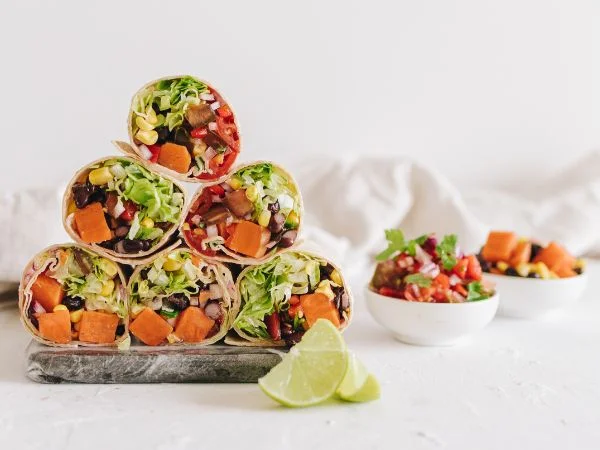
Image source: Anna Pelzer (Unsplash)
Evidence continues to mount for the health and environmental benefits of plant-based diets.
Plant-based diets are associated with:
lower rates of cardiovascular disease
lower rates of many cancers
lower rates of diabetes
lower blood pressure
reduced mortality rates
fewer greenhouse gas emissions
If you are considering adopting a plant-based diet, it is important to ensure you do not compromise your nutrition in the process. Plant-based diets, including vegan diets, can be nutritionally adequate but often require a little more planning.
Nutrients that can be trickier to get on a plant-based diet include:
iron
calcium
omega-3 fats
vitamin B12
Contrary to popular belief, protein is rarely lacking in plant-based diets.
Here is a foolproof guide to assembling a nutritionally balanced plant-based meal.
Step one - start with an iron and protein-rich food.

Legumes - chickpeas, lentils, baked beans, black beans, kidney beans
Tofu - look for a firm, calcium-set tofu for a calcium boost
Tempeh
Textured Vegetable Protein - click here to see my previous post on how to cook with TVP
Nuts and seeds - prioritise omega-3 rich nuts and seeds such as walnuts, linseeds, chia seeds and hemp seeds
Step two - add some healthy carbohydrates

Rice - look for higher fibre and/or low GI options such as brown rice, basmati rice and black rice
Potato or sweet potato
Pasta - look for higher fibre or lower GI options such as wholemeal pasta or Pulse pasta
Barley
Quinoa
Corn
Wholegrain bread/wrap
Step three - fill half your plate with vegetables

This could be salad vegetables, cooked vegetables or frozen vegetables.
Putting it all together
Need some inspiration? Click below for some delicious plant-based recipes.
A word about vitamin B12
Vitamin B12 is only found in foods of animal origin - meat, chicken, fish, eggs and dairy products. Vitamin B12 is involved in DNA synthesis, energy production and your central nervous system. Some plant-based foods are fortified with vitamin B12. If you consume very little of these foods, you should speak to your GP or an accredited practicing dietitian about supplementation.
In short.
With a little bit of planning, plant-based meals provide all the nutrition you need!
Need some help ensuring your diet is nutritionally adequate?
Make an appointment with Linda today:
References
Le LT, Sabaté J. Beyond meatless, the health effects of vegan diets: findings from the Adventist cohorts. Nutrients. 2014 May 27;6(6):2131-47.
Willett, W., Rockström, J., Loken, B., Springmann, M., Lang, T., Vermeulen, S., Garnett, T., Tilman, D., DeClerck, F., Wood, A., Jonell, M., Clark, M., Gordon, L. J., Fanzo, J., Hawkes, C., Zurayk, R., Rivera, J. A., De Vries, W., Majele Sibanda, L., Afshin, A., … Murray, C. J. L. (2019). Food in the Anthropocene: the EAT-Lancet Commission on healthy diets from sustainable food systems. Lancet (London, England), 3), 447–492.




Nice presentation! I think after a short while the planning will become second nature and we don't have to stress about it so much!